Lok Sabha poll results are out this week. But Maharashtra also has a state assembly and civic body election staring at it. What is the ambitious, successful, vocal Mumbaikar craving from the elected rep?
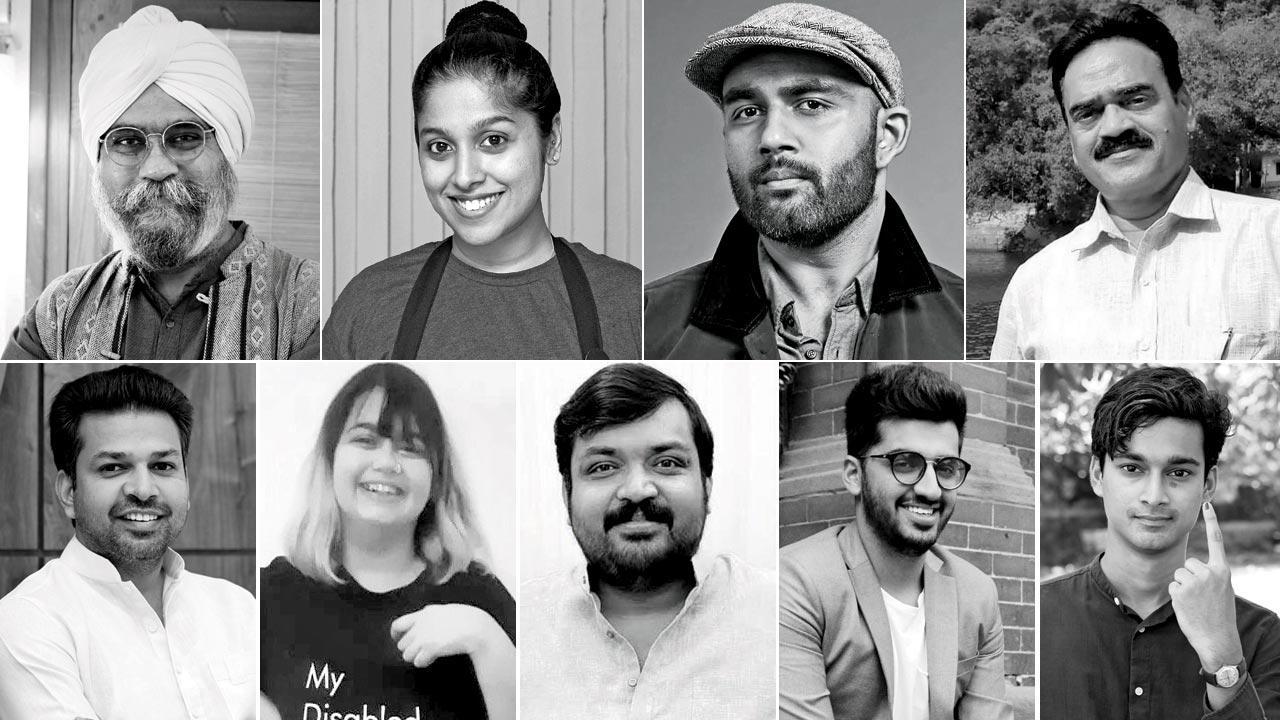
Malaksingh Gill, Niyati Rao, Rahul Reddy, Nandakumar Pawar, Suresh Shyamlal Gupta, Nu Misra, Faisal Malik, Vinamre Kasanaa and Chaitanya Prabhu
Byline Anand Singh, Mohar Basu, Mitali Parekh, Sanjeevni Iyer, Nasrin Modak Siddiqui, Arpika Bhosale
ADVERTISEMENT
‘Sustainability must become BMC’s top agenda’
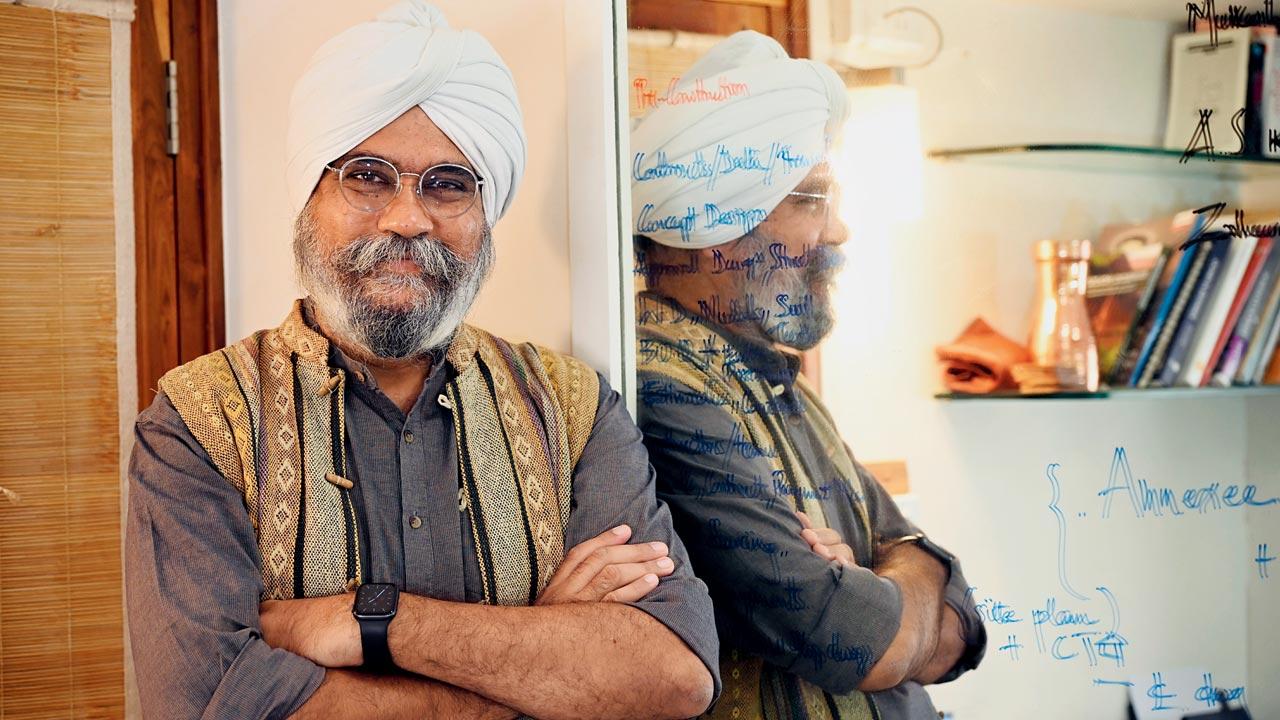 Pic/Kirti Surve Parade
Pic/Kirti Surve Parade
Malaksingh Gill
Eco-friendly, culture sensitive architect
Architect Malaksingh Gill’s USP is his sustainable approach. He owes his professional philosophy to mentor and British-Indian architect Laurie Baker, under whom he trained. Like Baker, who pioneered vernacular sustainable eco-friendly green architecture in India, Gill is known for his innovative use of mud, bamboo, brick, and other traditional materials. Gill is a rare voice in Mumbai who advocates environmentally responsible architectural practices. Cement and steel aren’t his best friends.
Mumbai didn’t always look like this. Before RCC construction became ubiquitous, carpentry and woodwork led the way in construction. Concrete, a heat magnet, is one of the reasons for the heat and pollution gradually becoming unbearable over the last few years.
“[Last year] It was for the first time in history that Mumbai’s AQI was worse than Delhi’s. The sea breeze generally comes to the rescue, but of late, even that hasn’t helped,” he says.
Singh argues that while it is fashionable for governments and authorities in India to discuss climate change mitigation measures in conferences and on a global scale, little is being done about it in hyper local governance “Leadership at all levels must value it [sustainable measures] and the change being brought about has to be meaningful,” Gill asserts.
Slum redevelopment, an important aspect in Mumbai’s expansion and progress, has often led to worsening conditions for residents. “There are sensitive ways to develop. Informal buildings, like slums and chawls make up a sizable chunk of our city’s built landscape. Cramped buildings harbour bad health. Builders and developers tend to focus on the financial aspect of redevelopment. This is where the government, state or central, must intervene.”
Mumbai can be a leader in sustainability, Gill feels, and the onus is on all stakeholders. “Developers, big or small, can include micro windmills and solar panels [in their design]. It can be easily done on buildings of all sizes in Mumbai. It would help in running at least the essential services like water pumps and lighting.” He envisions a Mumbai where solar energy and rain water is routinely harnessed.
Because the BMC demonstrated remarkable efficiency during the COVID-19 pandemic in managing one of the world’s densest cities, he feels there is hope when there is will “That is the kind of reach, penetration, and power that the civic authority has in the city. Sustainability can surely become one of its top agendas.” Without government support, little is possible. With it, though, Gill believes Mumbai has the potential to be a leader in sustainability.
‘Make Bollywood an organised industry, give compensation’
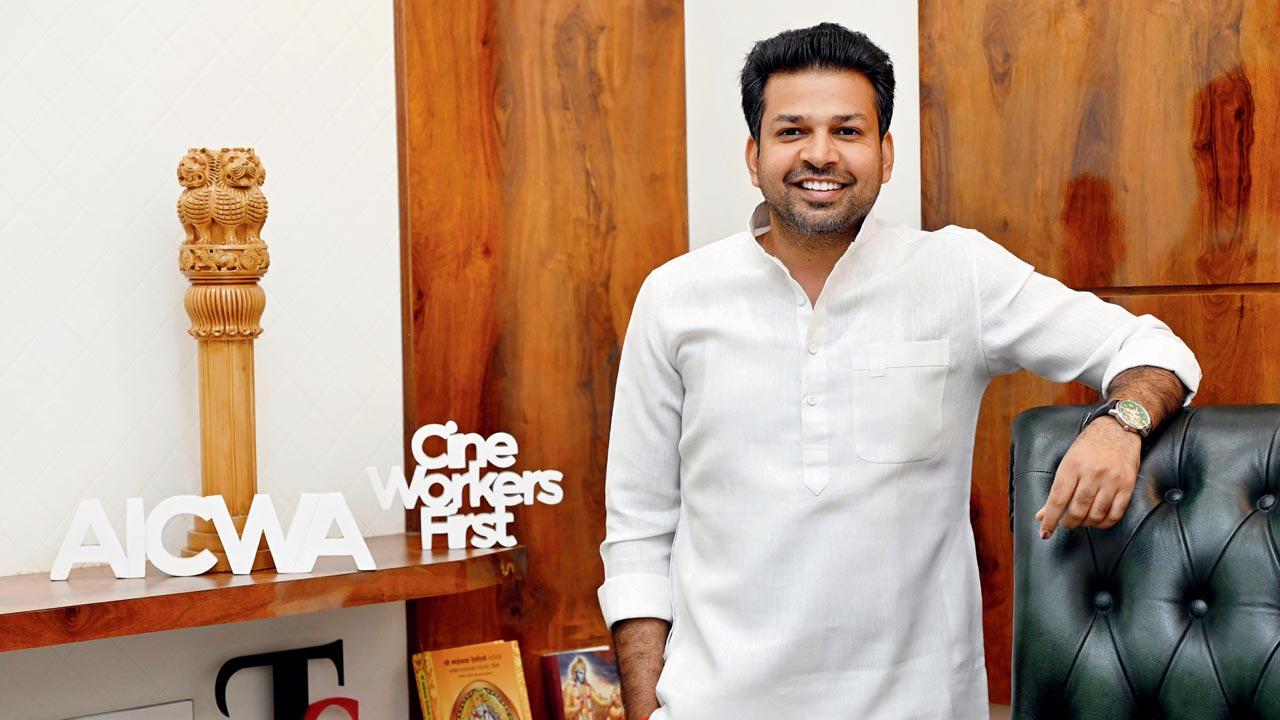 Pic/Satej Shinde
Pic/Satej Shinde
Suresh Shyamlal Gupta
President, All Indian Cine Workers Association (AICWA)
The All Indian Cine Workers Association (AICWA) is dedicated to advocating for the rights and welfare of cine workers in India. With a new government in the process of getting elected, Suresh Shyamlal Gupta has a simple ask—make the Hindi film industry an organised sector that gets all the perks and benefits like any other sector. “The industry generates a revenue of R2,000 crores but the compensation to this sector is not proportional. Every worker deserves fixed working hours, payments, Provident Fund, gratuity and medical insurance. Payments in our industry are not timely. Some payments are pending for over two years. And by the time it is time to pay, we have heard producers try to pay them much lower than the agreed amount. Additionally, though the timings are eight hours, most people work for anywhere between 16 to 18 hours. This has physical and emotional implications on their physical and mental health,” he says.
Workers in unorganised sectors often face severe hardships, and Gupta says they are vulnerable to financial instability. “Post COVID, 19 regular incomes of daily actors have gone down from Rs 2,500 a day to Rs 500. We are told there is no money in the industry, but actors still get paid. The daily wagers are exploited. They endure poor working conditions and receive inadequate wages without legal protection. The absence of social security measures exacerbates their economic insecurity, making it difficult for them to achieve a stable livelihood. Work cannot be adhoc. Aaj hai aur kal se mahine bhar kaam hi nahin hai. Getting work regularly is their right and we need to achieve a system that allows it for daily wagers!”
While the elevation of overall status of those hired by the industry is one of Gupta’s primary tasks from the government and local authorities, his immediate concern is to provide safety to female crew members of the industry. “There should be a toll-free number for women working in the industry for their safety. The Mumbai Police and local Government should dedicate a number just for women working in Bollywood. Women safety is a major concern for our industry and in order to attract more prospective people to work from across the industry. Every time a woman has raised a complaint, she has been collectively shut down. Now, it has become a norm that most don’t talk of what they go through fearing getting blacklisted. There are many women who have simply disappeared from the radar after a bad incident and not getting enough support to report to the cops. Those who work in unorganised sectors are invisible in official data. Who will tell the government the ground realities? As someone who is heading a mediatory body, I want this to be taken up on priority basis.”
‘Stop infantalising people with disability’

Nu Misra
Founder, Revival Disability India
Nu Misra is on the forefront of fighting to show disability as a social reality—not just an individual one—and the layered barriers in society essentially posed by seeing disability as uni-dimensional. “Disability has layers of caste, urbanisation, gender,” says the 26-year-old who identifies as a non-binary person and goes by the pronouns they/them, “and the system needs to legitimise our agency over our body so that our basic needs can be met.”
This includes health care, sexual reproductive right, and legal empowerment. “For instance, though in India, the MTP ACT [Medical Termination of Pregnancy] is supposedly liberal, there are many hurdles along the way: Clinics may not be wheelchair accessible in non-urban spaces, there is judgment at every step, a disabled person needs to be accompanied by a guardian for the doctor to approve the procedure, no information about aftercare—there’s evidence needed at every juncture,” they said. “A physically disabled person is seen as being cognitively deficient as well, not given agency over their body and their finances.”
These barriers, and lack of supportive infrastructure, Misra says, keeps them dependent on someone else at every juncture, and thus makes it difficult for a queer disabled person to break out of an abusive family structure. “It’s common knowledge that many queer people face violence in their native families,” she says, “this could be in the form of withholding of finances or other resources, such as vehicles, so basic needs are not met; and disability needs are not met either.”
They point out that the system sees them as one or the other: Queer or disabled, and not both. “For instance, a disabled trans person may not be allowed in a trans shelter homes run by the government by being seen as a disabled person.” It would lack the necessary ramp, friendly bathrooms or insist on the presence of a guardian/helper.
This systemic de-legitimisation of the body needs to be fought in courtrooms, clinics, Vidhan Sabhas and the Parliament. Municipal and law-protection bodies need to enforce inclusion of infrastructure such as free legal services, protection of identity, connecting the MTP Act with PWDV (Protection of Women from Domestic Violence) Act. Each hurdle needs to be recognised and removed legislatively.
‘Raste bana do, rent ghata do!’
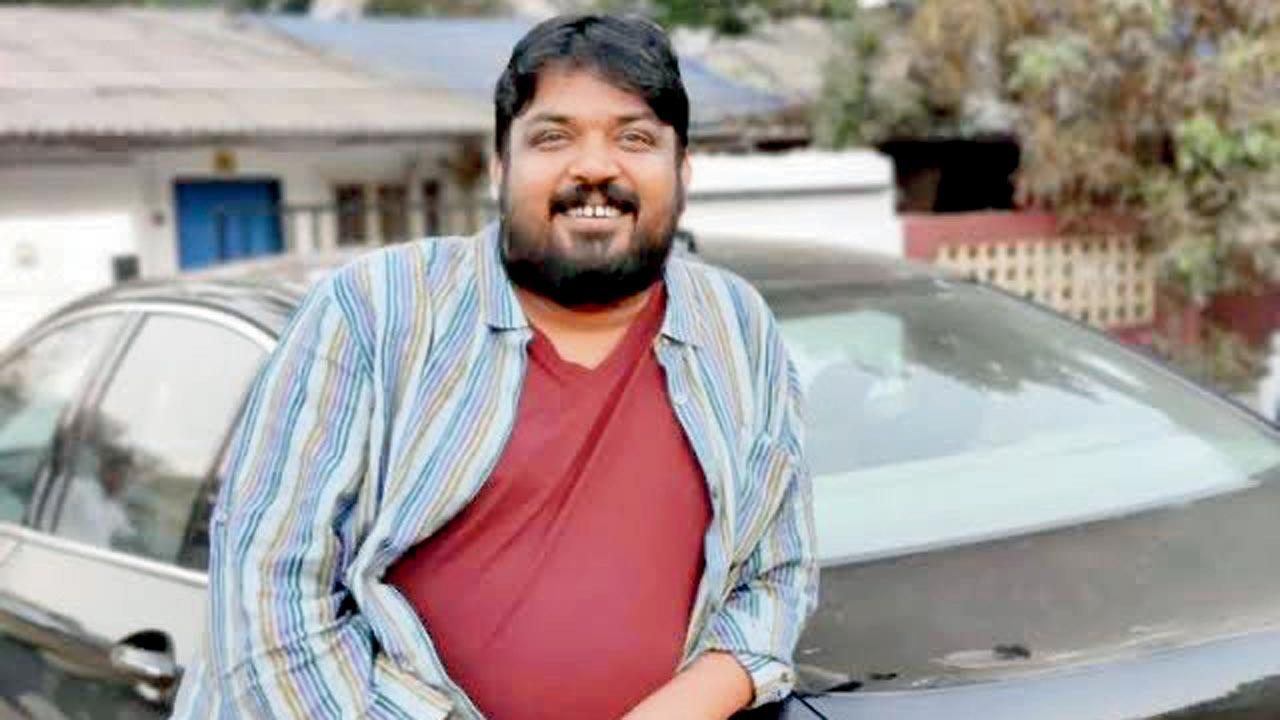
Faisal Malik
Actor-producer, best known for his portrayal of Prahlad Pandey in Panchayat
Season 2 of Amazon Prime Video India’s hit show Panchayat concluded on a somber note with the untimely death of ‘Prahladcha’ Panday’s soldier son, Rahul. Faisal Malik, who had been the cheerful sidekick through the first two outings of the Deepak Kumar Mishra-directed series which tells the story of an engineering graduate’s dystopian experience of leading Phulera village’s panchayat as sachiv/secretary, suddenly assumes a prominent role as the grief stricken father of a fallen hero in the just-released season 3.
As someone who is enjoying popularity with the masses after a decade-long struggle in acting, Malik pauses when we ask him to name one change he wishes to see the authorities swing for Mumbaikar given the upcoming national, state and civic election seasons.
Malik says it with a laugh: Bas raaste bana do, yaar!” Malik has been a Mumbaikar since 2006 when he moved here from Allahabad to give a career in performance a shot. “It is beyond me how this city is always under construction. Ek baar bana do aur ek aad saal ki chhutti le lo,” he tells the civic authorities.
Malik is on his way to the airport and was stuck in traffic when we dial him. Inevitably, it’s the pockmarked roads and resultant traffic that rob Malik of his jovial disposition. The seriousness crawls in pretty quickly in his voice. “This is no longer a laughing matter. Why are we having to demand something as basic as decent road [in the country’s financial capital]? The commute is taking longer. As an actor, I can tell you that the physical drain of being on the road forever takes a toll on my mind.
Getting out of home has become mentally and emotionally emptying.”
Having been in this city for 20 years, Malik feels that over time, Mumbai has become increasingly tougher on outsiders. They call this the city of dreams, he argues, and people from across the country and world land up here to make something of themselves, but the policies that govern it are increasingly pushing out the average Joe. “
“These days, brokers are peddling this theory that since a large number of buildings are going under redevelopment, the there is a rising demand for rented apartments. Why do landlords and builders have a field day? Malik wonders. “Why can’t the government intervene?”
“Sau rupiaye ke saaman ke liye 150 maangna jayaz toh nahin hai. Logon ki majboori ka fayda nahin uthana chahiye. Salaries haven’t gone up to match expenditure. People come from everywhere and make Mumbai their home. It’s they who toil and run the city. Forget me, the actor. What about our spot dadas [spot boys]? Can he afford his rent? Has he had to compromise with quality of life? Yes. The government must answer.”
‘Don’t interfere in our private lives’
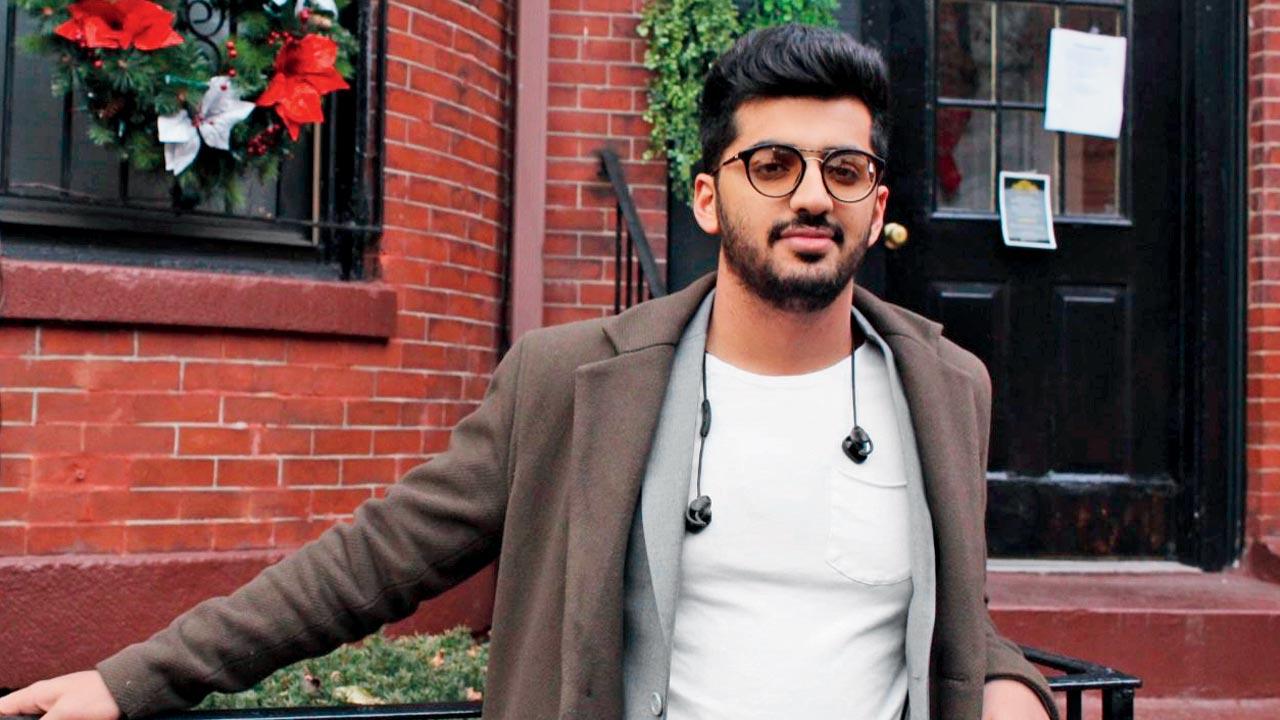
Vinamre Kasanaa
Writer and host of Dostcast, a popular podcast involving in-depth political conversations and interviews
This year’s elections have been unique in every aspect, including controversial debates on social media. The priority for host and YouTuber Vinamre Kasanaa, who interviews celebrities and opinion makers on his podcast, less government intrusion priority. “I want less intrusion from the government, which reduces their interference in the day-to-day lives of the people,” Kasanaa tells mid-day. “The government also must focus on introducing more skill-based courses as opposed to the conventional method of learning, while including more representation for the OBCs and other backward classes in key bureaucratic posts.”
Kasanaa has recently migrated from Haryana to Mumbai, and wishes he could have seen more green spaces in the North-Central Mumbai constituency. “There are barely any! And so, the crowds are heavy at these parks. I hope that changes with the new government.”
Amid the ongoing extremity of political discussions around the state, Kasanaa tries to bring neutral and informative discussions to the table. From having election predictions with notable leaders to conducting discussions on the accessibility of the political parties, his podcast, called Dostcast, is full of healthy reasoning.
The conversation further seeps into his expectations from the next Chief Minister of the state. “I want the next Chief Minister to implement the 24/7 nightlife promise that the government had earlier promised for Mumbai and Delhi, but it never took off. The state must reflect the sort of nightlife that’s present in global cities like Paris, Berlin or New York,” adds Kasanaa.
And lastly, he emphasises on lowering land prices in hill stations, thus encouraging people to be live closer to nature.
‘Dumping grounds should be located 12 kms away from human habitation’
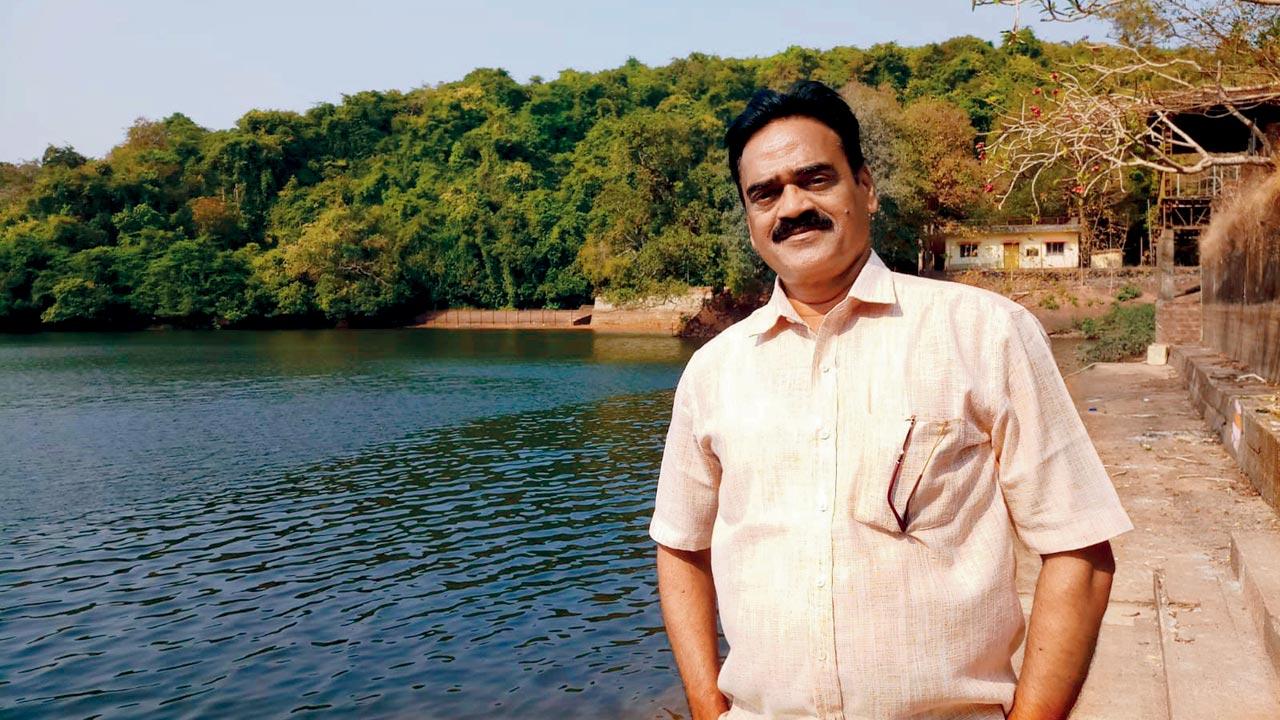
Nandakumar Pawar
Founder, Ekveera Pratishthan that works with conservation and restoration of wetlands
Chembur and Bhandup in Mumbai’s eastern suburbs stand out for a dismal reason. They house three of the city’s biggest dumping grounds. The filth in the Thane creek makes matters worse for these areas.
A crusader for the wetlands of Mumbai comes from this region —Nandakumar Pawar, an environmentalist and the founder of the non-profit Ekveera Pratishthan.
The stench rising from the dumping grounds that are so close to the residential areas shows the government’s apathy, feels Pawar. “Dumping grounds should be located at least 12 km away from human habitation,” he says. “But do you see any such rule being followed or implemented?” he asks.
Pawar’s frustration is palpable. The political parties have failed to address these issues at the local level. “Whether it is the BJP, Congress, or the factions of the Shiv Sena and the NCP, everyone talks about development, but not green development,” he says.
As a member of the Koli community, Pawar is particularly miffed with the false promises made to indigenous people and the fishing community regarding wetlands and decisions related to coastal regions, such as the construction of the MTHL and the coastal road. “Every government that has ruled Maharashtra claims that the voices of indigenous people will be heard. But ultimately, it is all driven by vote bank politics,” he laments.
Pawar recalls the promises of former MP Sanjay Patil of the NCP who was in the fray from his constituency in the Lok Sabha polls. Patil had discussed the removal of dumping grounds near residential areas. “But it was empty talk… It was raat gayi, baat gayi…,” he alleges.
Despite orders from the central government and various authorities, including the National Human Rights Commission, the National Green Tribunal, and even the Supreme Court and Bombay High Court, Pawar says the implementation of orders at the grassroots remains a nightmare. “The governance at the local level is not strong enough. Local administration has other priorities over environment-related issues,” Pawar explains.
Promises for the protection of mangroves, a crucial part of Mumbai’s ecosystem, have also fallen short, he says. “The prime minister, the chief minister, and the deputy chief ministers, all talked about protecting mangroves. But look at their state today—they sit in absolute neglect,” Pawar points out.
He also pointed out the “environmentally detrimental” decisions, such as the construction of MTHL and the Jawaharlal Nehru Port Authority, both inaugurated by Prime Minister Narendra Modi. Pawar also highlighted Chief Minister Eknath Shinde’s alleged approval of land acquisition in the Sahyadris at a rate of R1 per square metre in Ulwe for Tirupati Balaji temple.
To ensure accountability, Pawar says there should be a legal binding on lawmakers. “If they don’t deliver what they promise in poll speeches, the voters should have the right to remove them from power,” he says.
‘I want night markets for Mumbai’
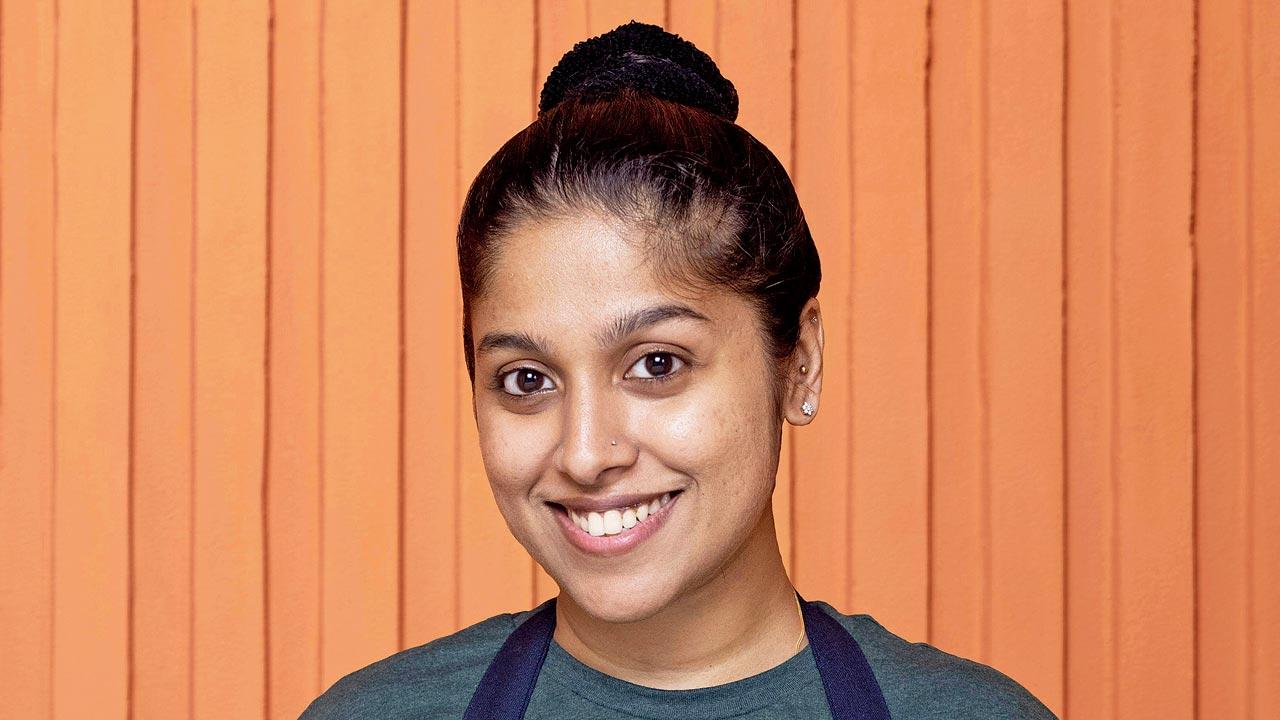
Niyati Rao
Co-founder Ekaa and KMC; Partner at NiSa Experience
Asian cities are known for their lively, open-air night markets that welcome shoppers, foodies and culture enthusiasts—somewhere where locals and tourists can revel in a culinary escapade. On returning to Mumbai from Copenhagen in 2020, Niyati Rao was determined to leverage her insightful experience at the World’s Best Restaurant, Noma, to leave a lasting mark on the Indian F&B landscape. Inspired by her travels, childhood memories, and the people she encountered, Rao conceived a restaurant where cuisine is interpreted and inspired by diverse cultures and ingredients.
Night markets, Rao feels. provide tourists and visitors with the opportunity to socialise and experience local culture in a unique setting. The cooler evening temperatures can make strolling through more enjoyable, especially in a coastal city like ours.
“It would be nice if the government gave this a thought,” she says, “Night markets have a rich cultural significance in many Asian cities, and Mumbai, with its diverse cultural heritage, could greatly benefit from such a concept. Sadly and ironically, a beautiful metropolis like itself that never sleeps, does not have a single organised night market.” Which brings her to hospitality operation hours in general. “It’s time that the authorities are more conscious about restaurant opening hours. We need some restaurants to be open 24/7 if they’d like to be. The city doesn’t have to pack up by 1 am.”
‘Engage youth to see largest voter turnout’
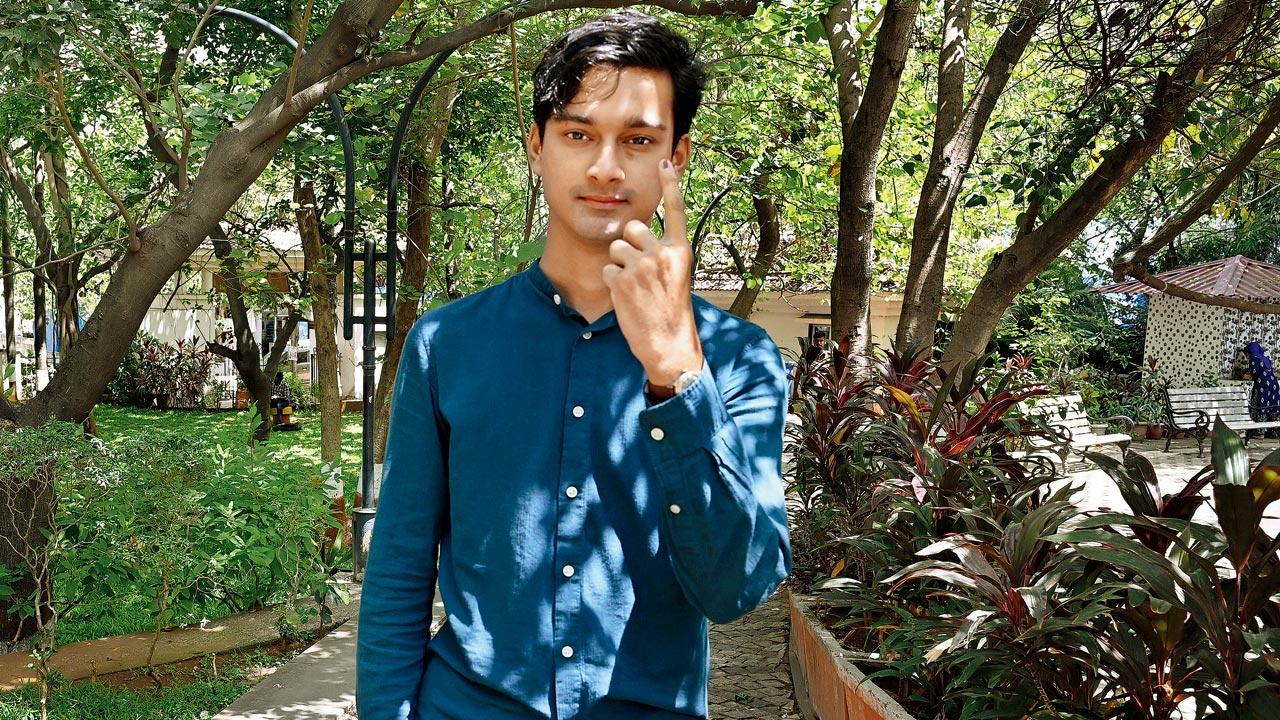 Pic/Anurag Ahire
Pic/Anurag Ahire
Chaitanya Prabhu
Head, Mark Your Presence’ campaign to increase youth voter turnout
Chaitanya Prabhu was a regular sight at Mumbai’s colleges in the run-up to the Lok Sabha elections. When he was merely 19, Prabhu began enlisting peers to register as voters, but last year, he accelerated his efforts to enroll those who turned 18.
Over the last six years, he has been on the forefront of the Election Commission of India’s Mark your Presence campaign, helping new voters register and procure a Voter ID.
Right off the bat, Prabhu whose day job is as a lawyer in Bombay High Court, clarifies the myth that “the youth don’t care”. “The first thing that most youth, including me, want is someone to hear them out,” he says, “City infrastructure, for one, is not an exclusive domain of older folk.” Despite having a stake in the city’s future, the youth feel they are not consulted.
“Projects are not envisioned for today or tomorrow; they are built for the next 50 years,” he points out, “ironically, we are the ones who will be around for the next 40 years, but have no say. Another serious concern is the environmental impact of infrastructural projects. Who is going to bear the brunt? It’s going to be us; politicians and planners will not be alive to see the harm they may cause.”
Unemployment is one of Gen Z’s biggest anxieties, but remains unaddressed. The concern is not unfounded: In January 2024, the Centre for Monitoring the Indian Economy (CMIE) declared that for the first time in one year and four months, the unemployment rate plunged from 6.8 per cent to 8.7 per cent. “So many placement cells in colleges are failing miserably to get us a job despite taking fees for their services,” says Prabhu.
Frustration and anger are also some reasons, he believes, that the youth doesn’t turn out to vote in the expected numbers despite best efforts from him and ECI.
“The general sentiment was that the youth was holidaying abroad or in Lonavala for the long [voting] weekend, but that may have been the case for those with money and wherewithal,” says the 25-year-old. “Most youth don’t have that kind of capital; they were at home but yet didn’t vote because they were genuinely fed up. It’s expected since none of their representatives bothered to talk to them.”
Prabhu insists that if the youth is engaged to feel they are stakeholders in the progress of their area, city and nation, the voting turnout will jump to numbers never witnessed before.
“Right now, the youth is the most neglected demographic,” says the Worli resident, “We are celebrated only for our numbers. The elected MPs should try out a small [engagement] step first; even small community meetings will go a long way. I have been speaking to students on campus and the sentiment is, ‘Ye bade-bade politicians hum logon ka sunenge ke nahi? These kids are passionate about where the country is headed. I think it is time politicians earn the trust of the youth. Party jumping, for example, is a big trust-killer for them. So they need to build new bridges with those who want a sustainable city.”
‘Introduce incentives to motivate F&B entrepreneurs to get creative’
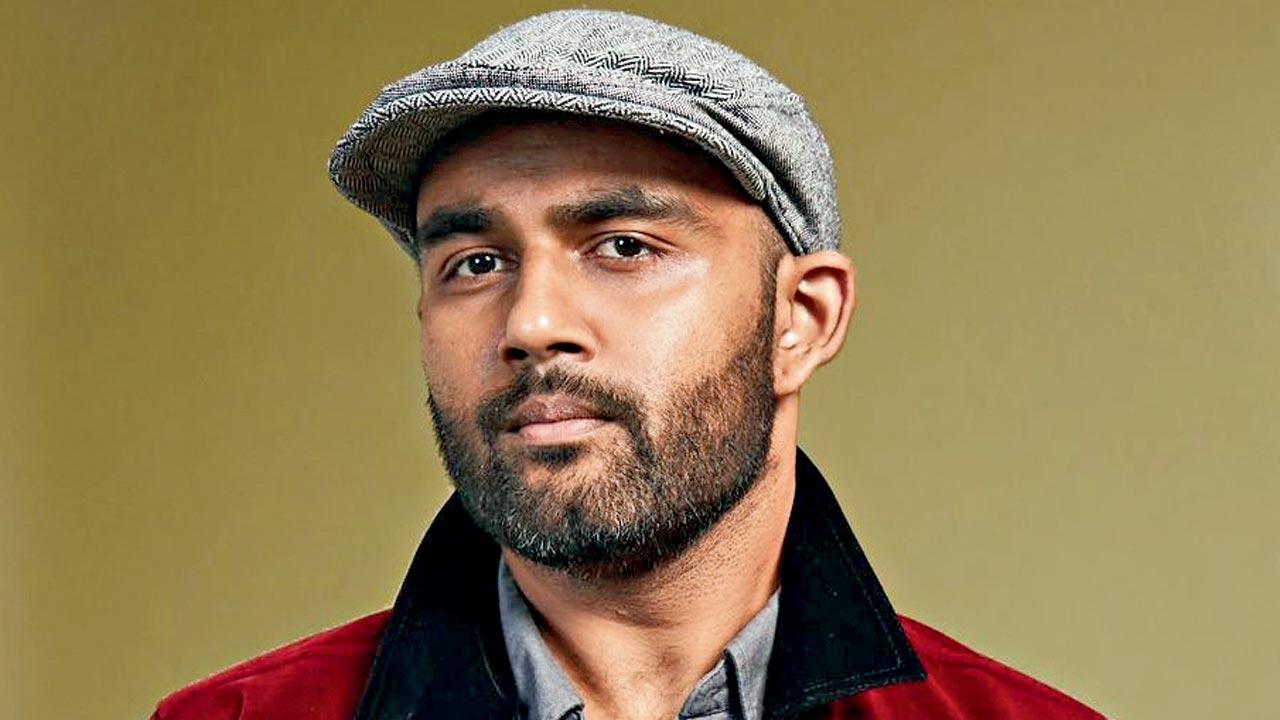
Rahul Reddy
Founder, Subko Specialty Coffee Roasters
With Subko, Rahul Reddy had intended to help re-imagine the Indian Subcontinent as a legitimate contributor to the global speciality coffee movements. In December 2018, the young entrepreneur left behind a career in the technology, social enterprise, and risk analyst sector to train as an apprentice at a speciality coffee company called City of Saints in Brooklyn, New York. Since then, he feels that Indians must be motivated with incentives to launch creative F&B projects if we wish to see innovation. “The bureaucratic processes should be simplified to allow ease of doing business and help new entrepreneurs overcome initial hurdles. The regulatory framework must be made simple and predictable so that compliance is not an issue across the industry.”
Reddy also feels that the city needs more pedestrian-friendly areas that are F&B centred so that residents and tourists can enjoy more walkable spaces that also serve interesting food and drink. “This emphasis on pedestrian-friendly spaces underscores the city’s commitment to creating a more liveable and enjoyable urban environment.”
 Subscribe today by clicking the link and stay updated with the latest news!" Click here!
Subscribe today by clicking the link and stay updated with the latest news!" Click here!







